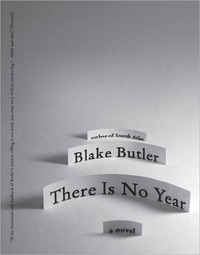You need to sign in or sign up before continuing.
Take a photo of a barcode or cover
This novel feels like every cliche of avant-garde fiction, all knit together. Give me DeLillo, or David Foster Wallace, or Nabokov, or Joyce, or Woolf (god, yes), or, for that matter, Homer, or the insanity of the Hebrew Bible, or Gilgamesh.
challenging
reflective
medium-paced
Here's the thing about experimental fiction without a distinct plot: it's interesting while you're in it, but then you put it down. You have to pee, or to sleep, or to go to work. While you're away at those things, there's no plot you're drawn back to. No characters you miss. You could start or finish just about anywhere and be full.
This book reads like an author who is trying to be David Lynch. Keyword TRYING. There is a mysterious box in a mysterious closet in a mysterious house, dimensions in dreams in darkness, unexplained phenomena.. but it just fails to impress. The story doesn't actually go anywhere, the characters are very predictable, and the format is weird simply for weirds sake.
The book wasn't boring, and it was a very quick read, but honestly it just felt like an attempt to take all the "creative" and "weird" qualities of a good book and cram them together unsuccessfully.
The book wasn't boring, and it was a very quick read, but honestly it just felt like an attempt to take all the "creative" and "weird" qualities of a good book and cram them together unsuccessfully.
This is a very hard book to think critically about, so I've chosen 3 stars: I both loved and hated it, wanted to both keep reading it into the night and forget that I had ever laid eyes on it. "An experience," are two very fitting words I can use to describe it. Pretension and honesty wrapped up in a curious package that seems to so well accomplish what it means to, though you wonder if what it means to accomplish is at all meaningful. And whether that matters, in the context of this approach to literature.
Other fitting words I could use to describe the experience are these:
Reading this book is like having a friend tell you about a really creepy, vivid, fucked up fever dream that sways drunkenly from one scene of horror to the next, illogically, the dreamer now awake and logical and detached from the dream so that the words relay a shifting and immutable terror in a voice devoid of the terror that it should hold. These scenes are planted like seeds in your mind in their own vivid imagery, if you're like me and you see and smell and taste and touch everything you're told (or everything you read) in great sensory detail. And there they remain trapped forever and left to grow, though you probably don't want them there, to be recalled at random in a passing conversation, a glance, a scene in your periphery, or worse, inside your own dreams. Only unlike the dreamer relaying the dream, you are awake and these ideas come to live in your waking memory and you can't quite stunt your emotional response to them the way the dreamer could. You're stuck with these thoughts, these nightmares from other minds, inside your own head, forever. They haunt you. You love everything about them. You hate everything about them.
Reading this book is pretty much exactly that experience, except now the dreamer is an author accomplished at evoking the most feverish of fever dreams.
Each short chapter is like a small and fantastically written ultra-modern poem that doesn't necessarily transition or connect to the chapter-poems around it. Butler makes use of unique text arrangement (quite in the style of [b:House of Leaves|24800|House of Leaves|Mark Z. Danielewski|http://ecx.images-amazon.com/images/I/51CV88E7WQL._SL75_.jpg|856555], a novel that I have to think was an IMMENSE influence on him), blurry black and white photographs, and changes in the pages' colour, from black to white and everything in between, to draw the reader in and jar them. These tiny fragments, the chapter-poems and images and formatting and colours, can be bunched together into a few central ideas: nihilism, the psychological landscape of the home, time and memory and the failures of both, illness, the banality of modern life (re: existential bullshit), horror, the frantic feeling of being trapped inside a family or a relationship or a house or a dream or a body, and so on and so on...
But mostly what you're left with at the end is someone else's nightmare in your mind.
It is simultaneously the worst and the best thing.
Other fitting words I could use to describe the experience are these:
Reading this book is like having a friend tell you about a really creepy, vivid, fucked up fever dream that sways drunkenly from one scene of horror to the next, illogically, the dreamer now awake and logical and detached from the dream so that the words relay a shifting and immutable terror in a voice devoid of the terror that it should hold. These scenes are planted like seeds in your mind in their own vivid imagery, if you're like me and you see and smell and taste and touch everything you're told (or everything you read) in great sensory detail. And there they remain trapped forever and left to grow, though you probably don't want them there, to be recalled at random in a passing conversation, a glance, a scene in your periphery, or worse, inside your own dreams. Only unlike the dreamer relaying the dream, you are awake and these ideas come to live in your waking memory and you can't quite stunt your emotional response to them the way the dreamer could. You're stuck with these thoughts, these nightmares from other minds, inside your own head, forever. They haunt you. You love everything about them. You hate everything about them.
Reading this book is pretty much exactly that experience, except now the dreamer is an author accomplished at evoking the most feverish of fever dreams.
Each short chapter is like a small and fantastically written ultra-modern poem that doesn't necessarily transition or connect to the chapter-poems around it. Butler makes use of unique text arrangement (quite in the style of [b:House of Leaves|24800|House of Leaves|Mark Z. Danielewski|http://ecx.images-amazon.com/images/I/51CV88E7WQL._SL75_.jpg|856555], a novel that I have to think was an IMMENSE influence on him), blurry black and white photographs, and changes in the pages' colour, from black to white and everything in between, to draw the reader in and jar them. These tiny fragments, the chapter-poems and images and formatting and colours, can be bunched together into a few central ideas: nihilism, the psychological landscape of the home, time and memory and the failures of both, illness, the banality of modern life (re: existential bullshit), horror, the frantic feeling of being trapped inside a family or a relationship or a house or a dream or a body, and so on and so on...
But mostly what you're left with at the end is someone else's nightmare in your mind.
It is simultaneously the worst and the best thing.
5 stars for commitment to style. Minus a star for frustration in how this slogs on and on and on. Some wonderings: is if about futility of surviving something just to die later on? Or the frustration of that? The end definitely points more directly to how life and the world goes on after one of us ants die. I also had a thought that a lot of the book could be that chemical dump the brain does as we die from the son’s point of view. I’ve read somewhere that our perception of time can be processed differently during that dump, letting a lot more thought happen in the period between our body dying and our brain shutting down completely. All in all, fever dream is the best way to describe the scenes in this book. It is both fun and frustrating to think of what the “point” this book makes could be
challenging
dark
sad
tense
slow-paced
Plot or Character Driven:
A mix
Strong character development:
Complicated
Loveable characters:
Complicated
Diverse cast of characters:
Complicated
Flaws of characters a main focus:
Yes
Blake Butler's writing is certainly poetic—it's very beautiful, even though it's describing really horrible and disgusting things. I love the style, but for a 400 page novel? It's a bit tough to get through. I'd find I'd go through several pages and only half-remember what I'd read. It was easy to get distracted, to not feel I had to pay attention to details. I was at the last page and didn't even realize it. In some ways, this is a cool effect, because that's also kind of what's going on in the novel. It gives a distorted sense of time while you read, which is also happening to the characters, but it also takes away a bit of the enjoyment. It felt like some of those chapters could've been eliminated even though all of the writing was strong. I found myself paying attention to things like how often the word "nodule" was used. Butler has a genius mind, the way he can continue creating the most bizarre scenarios, and I'll continue reading all of his work, but I just wish this one had been a tiny bit shorter. It's the kind of book that I think a second reading would really benefit for understanding or tying together some ends, but I don't think I could pay attention any better the second time simply because it's so long.
Such beautiful, poetic writing. I was having trouble following the narrative thread if I veiwed this book as a novel, but if I considered it as a set of connected prose poems I liked it much better. Very evocative.
challenging
dark
mysterious
reflective
tense
slow-paced
Plot or Character Driven:
N/A
Strong character development:
Yes
Loveable characters:
No
Diverse cast of characters:
No
Flaws of characters a main focus:
Yes









